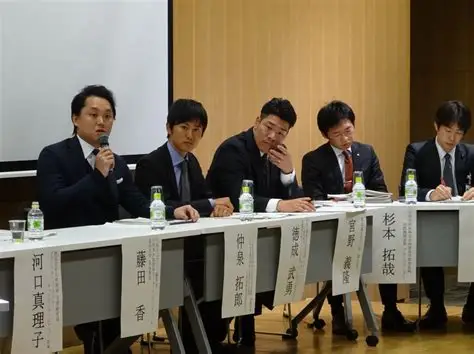The Ministry of the Environment and the United Nations University Institute for the Advanced Study of Sustainability (UNU-IAS) held a symposium on January 22 titled “SDGs Business Initiatives from Kanazawa, Ishikawa.
This symposium was organized to encourage participation from a wide range of business sectors in promoting the Sustainable Development Goals (SDGs). The region of Ishikawa and Kanazawa is home to companies known for their “global niches,” as well as businesses that have contributed to the local community for generations. This cultural affinity for the SDGs led to robust discussions on local SDGs business models.
Following the opening remarks by Tokutaro Nakai, Director-General of the Ministry of the Environment, Kazuhiko Takeuchi, Director of the Research Institute for Sustainability Development at the University of Tokyo, delivered the keynote address. In his presentation, he discussed international trends related to the SDGs and the movements observed at both national and local government levels in Japan. He emphasized that we have entered an era where environmentally conscious activities serve as engines for business growth, and he pointed out that considering the SDGs can create business opportunities for companies.
During the case presentations, Takuro Nakaizumi, Executive Director of the Kanazawa Junior Chamber of Commerce, introduced the SDGs Business Consortium Kanazawa, a collaborative framework involving the JC Kanazawa, OUIK, Kanazawa Institute of Technology, and JICA Hokuriku. He also shared insights on how JC Japan is working to create self-sustaining systems aimed at sustainable development in developing countries where access to safe water is challenging. Takuo Norinari from Meiwa Kogyo Co., Ltd. discussed a business model utilizing their environmentally friendly equipment in developing countries. Additionally, Yoshitaka Miyano from the agricultural corporation One highlighted how their initiatives in “profitable sustainable agriculture” align with numerous SDGs and expressed their ambition to contribute to addressing global hunger by accumulating and sharing their production knowledge in the future.
The panel discussion was moderated by Kenshi Kanie from Keio University. Before the discussion began, Mariko Kawaguchi, a senior researcher from Daiwa Institute of Research, presented on the movements of large companies in light of ESG (Environmental, Social, and Governance) investments, pointing out that corporate activities inconsistent with ESG principles could pose risks in the future. Kaori Fujita from Nikkei Ecology raised points about the need for organizational transformations to develop new technologies, systems, and products that address global challenges within the framework of the SDGs. The panel discussion highlighted the importance of collaboration among companies facing similar challenges, the necessity of building partnerships, and the critical role of government in actively engaging in human resource development, particularly in areas that are hard to secure funding for.
In conclusion, Watanabe, the director of OUIK, stated that this event marks the kickoff of OUIK’s 10th anniversary celebrations and expressed the commitment to further advance the industry-government-academia collaboration established in Kanazawa as a platform for SDGs business.
[1] This acronym stands for Environment, Social, and Governance. The idea has been gaining global traction that these three perspectives represented by ESG are essential for the long-term growth of companies.
[2] It emphasizes that investment decisions should not only focus on financial information but also take ESG factors into account.




